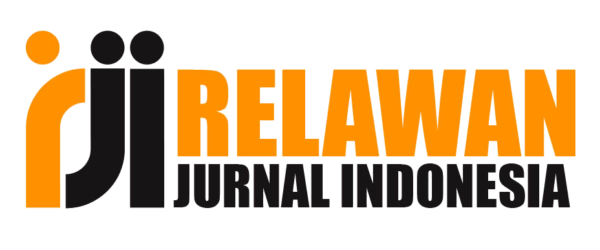Pengaruh pembelajaran inquiry terhadap kemampuan practices of scientific investigation peserta didik : Analisis menggunakan pendekatan instruksional implisit dan eksplisit
Abstract
The purpose of this study is to determine the influence of implicit and explicit instructional approaches on learners' POSI learning and compare the influence of implicit and explicit instructional approaches on learners' POSI learning. This research was conducted using the Quasi-Experimental method, where the research design used was One Group Pretest - Posttest Design with the research sample being 30 students of class X MIPA 5 and X MIPA 6 SMA Negeri 4 Cirebon. The instrument used in this study was a written test using paper and pen, in the form of a pretest and posttest about the ability of practices of sciencetific investigation (POSI). The form of the instrument used is multiple choice. In this study, a measurement of the POSI ability of students was first carried out before being given treatment in the form of a pretest, then the two experimental classes were given different treatments. Finally, learners are given a posttest about POSI ability. The tests carried out on the research, namely using the Independent t Test and Paired t Test. The results showed that both models influenced the POSI ability of students, but students who applied an explicit instructional approach had greater POSI abilities compared to students who applied the implicit approach. Substantially this explicit instructional approach is more effective in encouraging learners' POSI abilities and This explicit instructional approach also seems to be a promising approach to support learners' POSI abilities.
Keywords
Full Text:
PDF (BAHASA INDONESIA)References
Arnold, J. C., Kremer, K., & Mayer, J. (2014). Understanding Students’ Experiments—What kind of support do they need in inquiry tasks? International Journal of Science Education, 36(16), 2719–2749.
Ball, A., Joyce, H. D., & Anderson-Butcher, D. (2016). Exploring 21st century skills and learning environments for middle school youth. International Journal of School Social Work, 1(1), 1–15.
Berland, L. K., Schwarz, C. V, Krist, C., Kenyon, L., Lo, A. S., & Reiser, B. J. (2016). Epistemologies in practice: Making scientific practices meaningful for students. Journal of Research in Science Teaching, 53(7), 1082–1112.
Cuevas, P., Lee, O., Hart, J., & Deaktor, R. (2005). Improving science inquiry with elementary students of diverse backgrounds. Journal of Research in Science Teaching: The Official Journal of the National Association for Research in Science Teaching, 42(3), 337–357.
Daniah, D. (2020). Pentingnya inkuiri ilmiah pada praktikum dalam pembelajaran IPA untuk peningkatan literasi sains mahasiswa. Pionir: Jurnal Pendidikan, 9(1), 144–153.
Dean Jr, D., & Kuhn, D. (2007). Direct instruction vs. discovery: The long view. Science Education, 91(3), 384–397.
Efendi, D. R., & Wardani, K. W. (2021). Komparasi Model Pembelajaran Problem Based Learning dan Inquiry Learning Ditinjau dari Keterampilan Berpikir Kritis Siswa di Sekolah Dasar. Jurnal Basicedu, 5(3), 1277–1285.
Haerani, S. A. S., Setiadi, D., & Rasmi, D. A. C. (2020). Pengaruh model inkuiri bebas terhadap kemampuan literasi sains. Jurnal Pijar MIPA, 15(2), 140.
Hofstein, A., Navon, O., Kipnis, M., & Mamlok‐Naaman, R. (2005). Developing students’ ability to ask more and better questions resulting from inquiry‐type chemistry laboratories. Journal of research in science teaching, 42(7), 791–806.
Kamalia, I. N., Anggraeni, S., & Adisendjaja, Y. H. (2020). The development of marine resources investigative practicum and its effect on creative thinking skills and life skill of vocational school student. Journal of Physics: Conference Series, 1521(4), 042032.
Kuhn, D. (2016). What do young science students need to learn about variables? Science Education, 100(2), 392–403.
Kurniawati, D., Masykuri, M., & Saputro, S. (2016). Penerapan model pembelajaran inkuiri terbimbing proses sains dan prestasi belajar pada materi pokok hukum dasar kimia siswa kelas X mia 4 sma n 1 karanganyar tahun pelajaran 2014/2015. Jurnal Pendidikan Kimia (JPK), 5(1), 88–95.
Mashudi, M. (2021). Pembelajaran Modern Membekali Peserta Didik Keterampilan Abad Ke-21_Jurnal Mashudi. Al-Mudarris: Jurnal Ilmiah Pendidikan Islam, 4(1), 93–114.
Osborne, J. (2014a). Scientific practices and inquiry in the science classroom. Dalam Handbook of research on science education, Volume II (hlm. 593–613). Routledge.
Osborne, J. (2014b). Teaching scientific practices: Meeting the challenge of change. Journal of Science Teacher Education, 25(2), 177–196.
Septiani, D., & Susanti, S. (2021). Urgensi Pembelajaran Inkuiri di Abad ke 21: Kajian Literatur. SAP (Susunan Artikel Pendidikan), 6(1).
Syifa, A., & Kumaidi, K. (2015). Evaluasi pembelajaran biologi di sma negeri 3 Yogyakarta. Jurnal Evaluasi Pendidikan, 3(2), 112–122.
Vorholzer, A., Aufschnaiter, C., & Kirschner, S. (2016). Entwicklung und Erprobung eines Tests zur Erfassung des Verständnisses experimenteller Denk-und Arbeitsweisen. Zeitschrift für Didaktik der Naturwissenschaften, 1(22), 25–41.
Vorholzer, A., Von Aufschnaiter, C., & Boone, W. J. (2020). Fostering upper secondary students’ ability to engage in practices of scientific investigation: A comparative analysis of an explicit and an implicit instructional approach. Research in Science Education, 50, 333–359.
DOI: https://doi.org/10.17509/wapfi.v7i2.48006
Refbacks
- There are currently no refbacks.
Copyright (c) 2022 Muhammad Zaky Zulkarnain

This work is licensed under a Creative Commons Attribution-ShareAlike 4.0 International License.
The Journal Wahana Pendidikan Fisika http://ejournal.upi.edu/index.php/WapFi/ is licensed under a Creative Commons Attribution-ShareAlike 4.0 International License
The Journal WaPFi (Wahana Pendidikan Fisika).
All rights reserverd. pISSN 2338-1027 eISSN 2685-4414
Copyright © Faculty of Mathematics and Science Education (FPMIPA) Universitas Pendidikan Indonesia (UPI)










